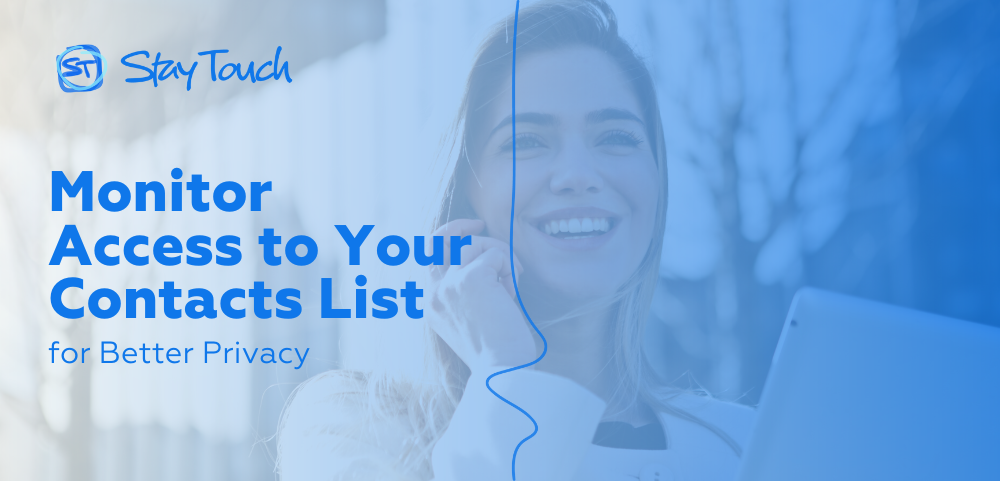In a world of digital information that is easily shared, it is much harder to keep that information private. Your contacts list is a wealth of information, even with just a basic list of names and numbers. Most people use their contacts to store much more sensitive information, such as addresses, birthdays, account numbers, and more.
Despite how crucial it is to keep these contacts private, we regularly grant third-party apps access to our contact list. Apps such as Venmo, Wayfair, Facebook, Instagram, and more are allowed to access our contact lists. Apps only need to be given permission once to have continual admission to such private information. It is essential to monitor access to your contact list for better privacy for you and your contact list alike.
What is Accessed in Your Contact List?
When you enter a new contact into your phone, there are several optional fields to fill out. Name, phone number, email, and address are the most common. However, there are usually more fields than that. Job titles, anniversaries, birthdays, your relationship to the person, and a notes section provide more detail on each person. This is all perfectly normal information to have, but not something you would normally share without their permission.
Every time you give an app access to your contacts, you potentially give them access to every little bit of information you input. Not all apps can see all of the information, but many can. A large percentage of companies are less than forthcoming about what information is visible on their apps. Some, like Pinterest, can only see the name, phone number, and email address of each contact. Others, like Snapchat, can see birthday dates, profile pictures, and the last time the contact was updated.
There is a long history of tech companies mishandling sensitive information. Despite this, most companies are still reluctant to give customers control over their privacy. Revoking access does not reverse what information has already been shared. It merely stops the active flow of new information. Getting that data deleted is difficult and in some places impossible.
Many apps collect information without it being necessary. The general population tends to grant access without question or consideration of the implications. Whether it’s through data breaches, intentional leaks, hacks, and other means, private information doesn’t remain private for very long.
Protecting Your Contacts: Google Contacts List and Other Alternatives
The first thing to do is check what apps already have access to your contacts. You can edit who has access to your contacts if you go into the privacy settings of your phone. From there, you can decide which companies should continue having access to your information. You can also access your Google and Microsoft accounts to remove unnecessary access permissions.
When setting up new apps, don’t rush through all the permissions and agreement terms. It may be a bit more tedious, but in the end, it’s worth it to maintain awareness of the app’s policies. In some cases, they do need your contacts to send and receive private messages. Apps without that feature shouldn’t require any more than the bare minimum of information.
It’s important to pay attention to where you store your contacts. Technology is getting more advanced, and now allows a little more privacy than before. Google’s newer operating systems revoke access to Google contact lists in unused apps. Many apps are also beginning to limit what information they take. Slack, for example, only saves the information of people invited to the app, instead of an entire contact list.
You can also choose to store your contacts in contact management software instead of your phone’s contact app. This software is third-party and keeps the information separate from other apps. These apps are very useful for managing your contacts list. You’ll need to get clear on the privacy policy. What do they do with the information you store?
Manage My Contacts List with StayTouch
Manage large, unwieldy contact lists with StayTouch. This app allows you to grow your customer base and develop your business relationships. Get reminders to check in with your contacts, so you don’t lose touch. Keep up-to-date notes on each contact. Get started managing your contacts with StayTouch today!

